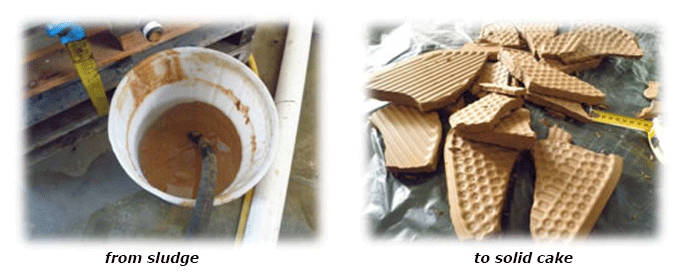JIPL have undertaken ‘laboratory-type’ test work on over a hundred different effluents, to determine the technical parameters necessary to condition the sludge for effective de-watering. The work allows JIPL to determine flocculation requirements, filtrate quality, cake dry solids, and so on. This is normally the first step in determining de-watering requirements.
Trials are especially important to prove the process under specific production conditions and thereby enable a factual cost-benefit analysis.
For production trials, JIPL has a sophisticated pilot test press permanently available in New Zealand. The press is skid-mounted for easy transport, can produce cakes of different thicknesses, operates up to 16 bar, and features a membrane squeeze option (with subsequent cake air-blow and cake back-wash facilities).
Trials are especially important to prove the process under specific production conditions and thereby enable a factual cost-benefit analysis.
Applications
The test filter press can be used for any solids de-watering project – whether the solids or liquids are the valuable products. The unit is a simple manually operated plate and frame type, which allows us to optimize the cake thickness. The central plate has flexible membranes both sides, and air is used to inflate them and squeeze the cake inside the press, for maximum liquid removal. The filtrate is ported internally and collected for analysis as required.
The unit is available from our Hamilton store and can be transported to any site in New Zealand. The unit requires only compressed air and tap water for wash-down (no electricity). JIPL personnel are available to operate the plant and/or can train your staff for extended trials.


